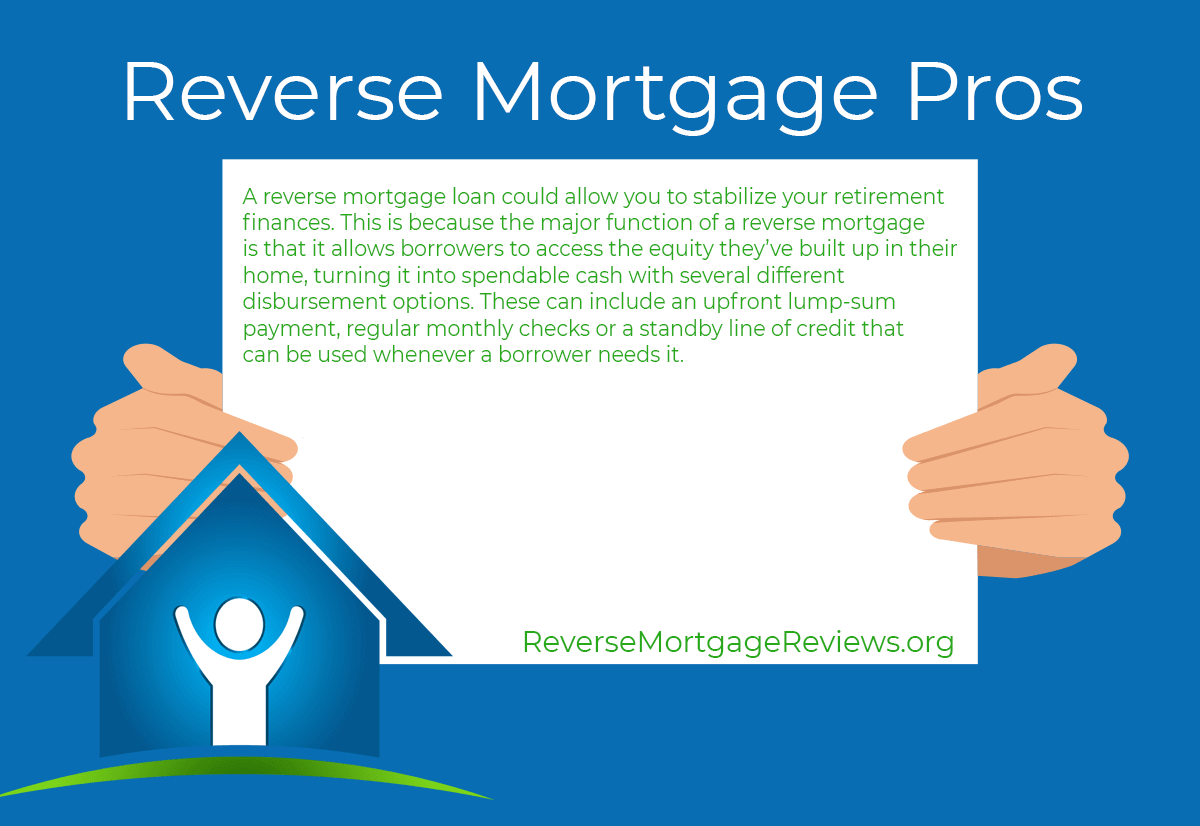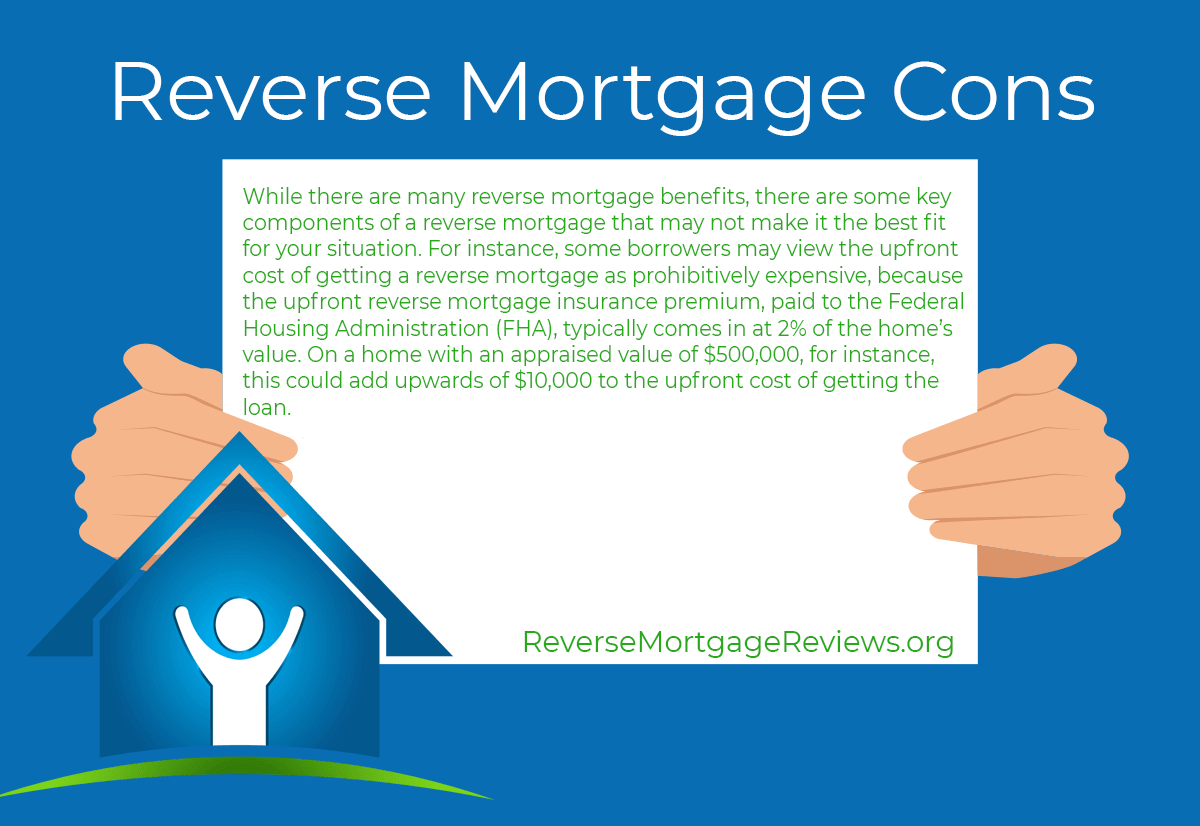Navigating Pros and Cons of Reverse Mortgages in 2025
Mike Branson Jr. – Author
Mike Branson Jr. has 25 years of experience in the mortgage banking industry. He has devoted the past 19 years to reverse mortgages exclusively. Mike has worked in several aspects of the Mortgage industry, including Loan Origination, Underwriting, and Management.The decision to get a reverse mortgage can be big, depending on the borrower’s financial situation. Maybe you’ve decided that additional cash flow will help to stabilize your retirement finances, or maybe you’re looking to fund something like in-home care or a renovation to make your house more accessible.
Whatever your potential reason for getting a reverse mortgage, you won’t find an industry that is more upfront about the potential benefits with possible downsides to the product category.
Any reverse mortgage professional worth their salt will be very open about the fact that it is not a product category that can work well for everyone, but for those whom it can work for, it’s best to have all the information you can get ahead of time.
This article will lay out the pros and cons of reverse mortgage loans, including ways in which the proceeds from the loan can be used, the potential drawbacks of using one, and how taking one out can affect the people around you.
Reverse Mortgage PROS and CONS:
- Reverse mortgage pros
- How a reverse mortgage can stabilize your retirement
- How an existing mortgage can be paid off
- Why you’ll be able to remain in your home
- How you’re protected from going “underwater.”
- Reverse mortgage cons
- The upfront cost
- How could your heirs inherit less
- The possibility of foreclosure
- Reverse mortgage complexity
The pros of a reverse mortgage

If your retirement finances are becoming challenging to manage or build, then a reverse mortgage loan could allow you to stabilize your retirement finances. This is because a reverse mortgage’s primary function is allowing borrowers to access the equity they’ve built in their home, turning it into spendable cash with several different disbursement options.
These can include an upfront lump-sum payment, regular monthly checks, or a standby line of credit that can be used whenever a borrower needs it.
If you already have an existing forward mortgage, it is beneficial that a reverse mortgage will pay off any remaining mortgage balance first, effectively ending your existing mortgage and eliminating that often-costly monthly payment, particularly for someone who lives on a fixed income. Indeed, an existing mortgage must be paid off before you can access any additional proceeds since the reverse mortgage loan is required to be in the “first lien” position.
Still, a reverse mortgage is unique in that you are allowed ? and indeed required ? to remain in your home as a borrower. Many seniors who have spent sizable portions of their lives in their homes understandably find leaving that home to live in specialized senior housing or assisted living facilities stressful. If you want to access your home’s equity without moving out of the house, then a reverse mortgage might be the right loan.
Most reverse mortgages are insured by the Federal Housing Administration (FHA), a U.S. Department of Housing and Urban Development division. One of the benefits of being sponsored by the federal government is that each reverse mortgage loan carries borrower protections and guarantees, such as the stipulation that a borrower can never owe more on the reverse mortgage than the home was worth at the time of sale. This protects you as the borrower and your heirs from having to repay a loan balance that exceeds the value of the home sale proceeds.
The cons of a reverse mortgage

While there are many reverse mortgage benefits, some key components of a reverse mortgage may need to be a better fit for your situation. For instance, some borrowers may view the closing cost of a reverse mortgage as prohibitively expensive because the upfront reverse mortgage insurance premium, paid to the Federal Housing Administration (FHA), typically comes in at 2% of the home’s value. For instance, a home with an appraised value of $500,000 could add upwards of $10,000 to the upfront cost of getting the loan.
A reverse mortgage is also still a mortgage, meaning that it is a debt-based lending instrument. Since you are borrowing against the equity you’ve built up in your home, the loan balance must be paid back when you leave it ? either after you pass away or decide to move out. This could mean your heirs stand to inherit less than they would if you did not have the reverse mortgage since the loan is most often repaid using proceeds from the sale of the home. If your heirs wish to keep the home, they may repay the loan through other means.
Since it is a mortgage, it is still possible to be foreclosed upon if you still need to meet the terms of keeping the loan in good standing. For a reverse mortgage, this means maintaining your property tax, insurance payments, and any associated homeowners’ insurance and homeowner’s association (HOA) fees that may apply. The home must also be maintained to FHA standards, including keeping the home in good repair.
Finally, reverse mortgages can be complicated and have some disadvantages. Like with other financial products, there is a lot of information to learn and keep track of, which may turn some seniors off the idea of getting such a loan. In that event, the best thing you can do if still considering getting one is to ask as many questions from professionals as possible and to make sure your family and any other people potentially affected by the transaction are fully aware of what you intend to do.
Arm yourself with good information so that if you decide to avail yourself of the potential benefits, you know exactly what you’re getting into and what you need to do to keep the loan in good standing.
|
9 Comments on “Navigating Pros and Cons of Reverse Mortgages in 2025”
|
-
Admin July 8, 2022 Cheryl S.July 8, 2022 Can seniors receive a reverse mortgage on a multi complex building (6 units) in which they live, as well as rent to others? -
Admin October 25, 2022 Edgar RobinsonOctober 25, 2022 I'm in a situation where I am a heir my mother passed she had reverse mortgage the loans coming due it seems I only have two options sale or pay -
Admin November 27, 2022 Linda C.November 27, 2022 Once the last borrower passes away how long do I have to clean out the house if I don't want the house? -
Admin November 27, 2022 B. BoudreauxNovember 27, 2022 I am so confused. I was told I would not have a mort. pay. monthly. That there was no wait period if I chose to sell the property and that I could leave it to my kids and that I would receive a lump sum of money as my equity to spend like I want. Is all this true? -
Admin October 7, 2023 AnitaOctober 7, 2023 Very informative information...

